To provide the best experiences, we use technologies like cookies to store and/or access device information. Consenting to these technologies will allow us to process data such as browsing behaviour or unique IDs on this site. Not consenting or withdrawing consent, may adversely affect certain features and functions.
The technical storage or access is strictly necessary for the legitimate purpose of enabling the use of a specific service explicitly requested by the subscriber or user, or for the sole purpose of carrying out the transmission of a communication over an electronic communications network.
The technical storage or access is necessary for the legitimate purpose of storing preferences that are not requested by the subscriber or user.
The technical storage or access that is used exclusively for statistical purposes.
The technical storage or access that is used exclusively for anonymous statistical purposes. Without a subpoena, voluntary compliance on the part of your Internet Service Provider, or additional records from a third party, information stored or retrieved for this purpose alone cannot usually be used to identify you.
The technical storage or access is required to create user profiles to send advertising, or to track the user on a website or across several websites for similar marketing purposes.
 MovePlan in partnership with Hanson Search, claims that 40 percent of business leaders fear that the combination of the pandemic and Brexit will see their best talent disappear abroad, making hiring more challenging, just as the country begins to return to the ‘new normal’. (more…)
MovePlan in partnership with Hanson Search, claims that 40 percent of business leaders fear that the combination of the pandemic and Brexit will see their best talent disappear abroad, making hiring more challenging, just as the country begins to return to the ‘new normal’. (more…)








 Are you considering a change in career paths? One sector that you may wish to strongly consider is the security industry. Whether a retail store, office block, or nightlife venue, most businesses will usually require security personnel. Therefore, this is an industry where there is always demand for new staff. Working in security careers can be thrilling, challenging and rewarding. There should be no doubting the fact that every day offers something completely different. Choosing a job that suits you is no simple decision with several different security career paths that you can go down.
Are you considering a change in career paths? One sector that you may wish to strongly consider is the security industry. Whether a retail store, office block, or nightlife venue, most businesses will usually require security personnel. Therefore, this is an industry where there is always demand for new staff. Working in security careers can be thrilling, challenging and rewarding. There should be no doubting the fact that every day offers something completely different. Choosing a job that suits you is no simple decision with several different security career paths that you can go down.
 One of the least talked about potential casualties of the recent lockdowns is the printed page. In a sign that the arrival of the paperless office may have been accelerated, total worldwide page volumes printed from office and home devices plummeted nearly 14 percent year in 2020 after several years of stable but slow decline. According to the research from
One of the least talked about potential casualties of the recent lockdowns is the printed page. In a sign that the arrival of the paperless office may have been accelerated, total worldwide page volumes printed from office and home devices plummeted nearly 14 percent year in 2020 after several years of stable but slow decline. According to the research from 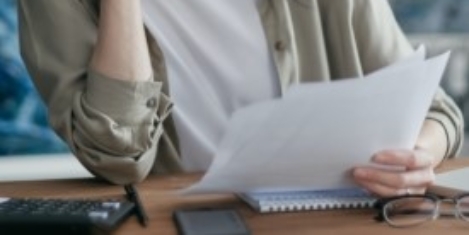
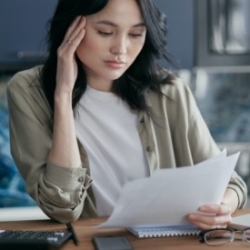 New research commissioned by
New research commissioned by 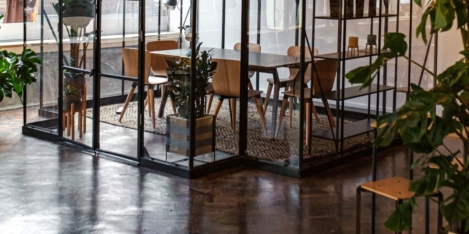
 Access to workplace counsellors, mental health training and support groups are topping the charts on what workers want on their return to the office, according to new research by
Access to workplace counsellors, mental health training and support groups are topping the charts on what workers want on their return to the office, according to new research by 
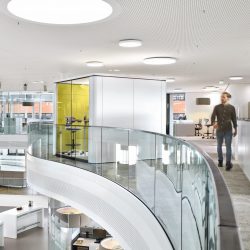 Heidrick and Struggles has released the results of a new global CEO study
Heidrick and Struggles has released the results of a new global CEO study 
 One of the unintended consequences of the pandemic has been to focus attention on the issue of indoor air quality. But as Sarah Zhang points out
One of the unintended consequences of the pandemic has been to focus attention on the issue of indoor air quality. But as Sarah Zhang points out 
 A new report from
A new report from 
 Paradoxically, more in-person work environments and the concentration of jobs in cities could be a medium- to long-term impact of the pandemic’s shift to remote working, suggests
Paradoxically, more in-person work environments and the concentration of jobs in cities could be a medium- to long-term impact of the pandemic’s shift to remote working, suggests 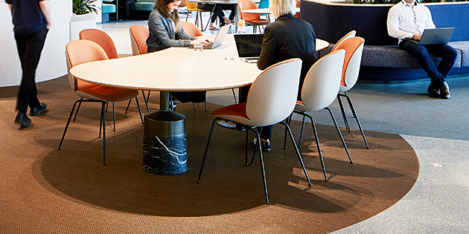
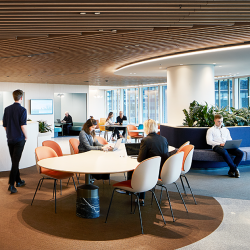 More than half (52 percent) of global companies anticipate a return to the office in earnest by the end of Q3 2021, according to new research by
More than half (52 percent) of global companies anticipate a return to the office in earnest by the end of Q3 2021, according to new research by 
 New research by
New research by 








July 14, 2021
Time to get real on what companies need from their real estate
by Dotan Weiner • Comment, Property, Wellbeing, Workplace design